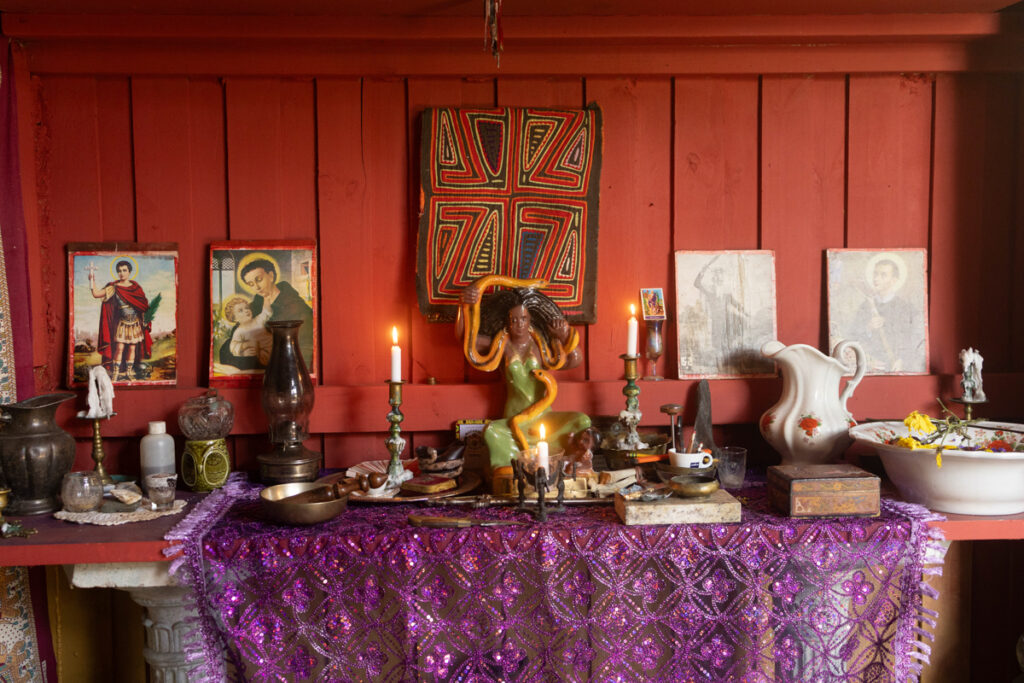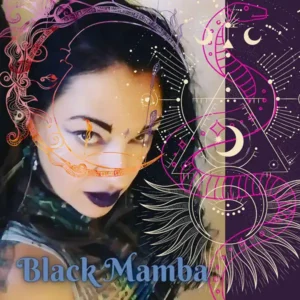
Sanse Espiritismo, also known simply as Sanse, is a spiritual system that blends Espiritismo (Spiritism), Vodou, and Indigenous Taíno shamanic traditions with elements of Catholicism. It emerged in the Caribbean, particularly in Puerto Rico and the Dominican Republic, where diverse spiritual practices merged through the influence of enslaved Africans, Indigenous peoples, and European settlers.
Espiritismo, the core influence in Sanse, originates from Kardecian Spiritism, which was brought to the Caribbean by European spiritualists in the 19th century. However, unlike its European counterpart, Caribbean Espiritismo quickly adapted to local traditions, incorporating ancestral veneration, African-derived spiritual practices, and Indigenous shamanic methods. Sanse is an evolved form of Espiritismo that integrates the Lwa (Vodou spirits), Catholic saints, and ancestral spirits into a working spiritual system that focuses on direct spirit communication and healing.
Sanse rituals typically involve:
Sanse is deeply shamanic in its foundation, as it involves the channeling of spirits, trance states, and the use of herbal medicine and ritual to heal and protect individuals. This connection to the spirit world is central to the practice, making it distinct from Western Spiritism, which is often more theoretical and less ritualistic.
Unlike mainstream meditation practices that focus on individual enlightenment and detachment, Vodou meditation is an active spiritual practice rooted in ancestral wisdom, trance work, and direct communication with spirits. It is not about emptying the mind but rather opening oneself to divine energy, spiritual forces, and the guidance of the Lwa and ancestors.
Origins of Vodou Meditation
Vodou meditation is an oral tradition passed down through generations, originating from the African spiritual systems of the Fon, Yoruba, Kongo, and Dahomean people who were brought to the Caribbean during the transatlantic slave trade. These traditions survived through secret rituals, prayers, and initiatory practices, evolving into Haitian Vodou, Dominican 21 Divisions, and New Orleans Voodoo.
Traditional Eastern meditation (such as Buddhist or Hindu practices) tends to focus on:
In contrast, Vodou meditation is interactive and dynamic, focusing on connecting with spirits, ancestors, and natural energies.
Vodou meditation is a living practice, not a passive experience. It requires engagement with the spirit world, making it a powerful tool for spiritual development, healing, and empowerment.
Vodou is inherently a shamanic practice because it revolves around:
Rather than seeking to remove oneself from worldly struggles, Vodou meditation helps individuals work through real-life challenges by enlisting spiritual allies. It is a form of active prayer and divine communion, where practitioners receive guidance and healing from spirits in real-time.
In modern times, Vodou meditation remains a powerful method for spiritual development, protection, and empowerment. Those who practice it find that it helps them to:
Unlike many forms of meditation that focus solely on self-awareness, Vodou meditation provides practical, spiritual solutions to life’s challenges by actively working with the spirits. It is an ancient practice that continues to evolve, offering a direct path to self-realization, protection, and enlightenment.
Through Sanse Espiritismo and Vodou meditation, practitioners enter a sacred dialogue with the unseen world, guided by spirits and ancestral wisdom—a tradition that has withstood the test of time and remains one of the most powerful forms of spiritual work available today.

With power, beauty, and abundance
Priestess Shoshana, CEO of Spiritual Teachers Voodoo and Temple de la Luna, Spirit Worker, Instructor, Psychic, Healer, Herbalist, Author
Ready to begin your spiritual journey? Join our mailing list for updates, spiritual tools, and offerings—plus get a free manual. Your path to spiritual empowerment starts here.